Ghosts of war crimes past
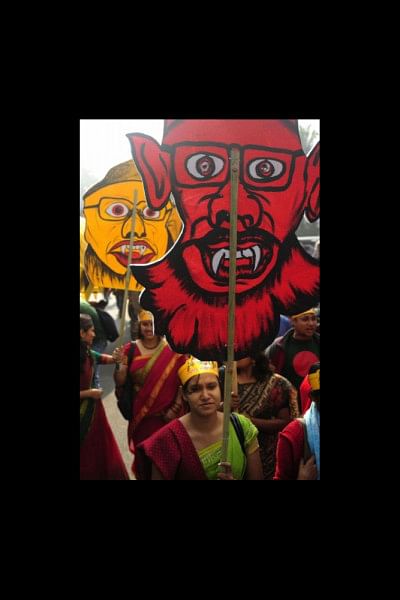
Four decades is much too long a wait for justice. The ICT was not about revenge, as many would and do simplistically reduce it to — it is about coming to terms with history. Before any further question, let us get past the facts that we know of the two war criminals hanged on November 22, Salauddin Quader Chowdhury and Ali Ahsan Mohammad Mojaheed. SQ Chowdhury, with his brash remarks, claimed he was not in Bangladesh during 71 — an alibi plea that did not hold up in court. As Barrister Shah Ali Farhad pointed out with clarity in his article, this alone does not prove him guilty — evidence from news reports, witnesses to his torture, and a statement and report from a doctor written during the time all point towards his guilt. As for Mojaheed, he was the man who claimed that there are no war criminals in Bangladesh, the man responsible for the murder of the intellectuals at the ending days of the war, the man guilty of killing Shahid Rumi, son of Jahanara Imam and musician Altaf Mahmud.
Are we then absolved now? Far from it, especially at a time when the ICT is questioned by our very own. The death sentences resonated with most of the population. But there were still those questioning, with what motive is open to speculation. A quick look at the responses critical of the hanging and the questions posed by these people are as follows: a) Isn't the ICT all 'political', designed by the government to rid itself of opposition? b) Were the trials fair? c) Why make such a big deal about the past?
The first question, always posed rhetorically at its most civil, is by far the easiest to answer. Yes, it is political — the matter is a political one. 1971 was as much about the politics of this country as it was about the social aspects. Is it a way for the ruling government to garner votes — maybe. But that is what a democracy is about, political parties put forwards policies to appeal to the voters. In this case, when the Awami League came to power in 2008 with the promise of holding the war crimes trials, the people of this country responded. The same way they had responded in the 90's to Jahanara Imam's Gono Adalat and its symbolic justice for these war criminals.
The people who raise issues about the fairness of the trial seem to be doing so out of some external motive. The questions are never about whether those condemned were guilty. In a country which authorises the death sentence for murder in criminal cases, it seems almost absurd that questions of the punishment being too harsh on war criminals who actively aided in genocide are raised. Was the ICT less than perfect — yes. The issues should have been about the protection of the witnesses, about the verity of the facts being presented, about strengthening the judiciary. Oddly, these questions were raised by activists fighting for the punishment of these war criminals; The Ghatok Dalal Nirmul Committee has raised all these issues about strengthening the ICT since its inception. But instead some people will question everything about the ICT itself in an attempt towards indicating that the accused may not have been guilty. Forty years of pain for the families, testimonies by the sons and daughters of those killed, countless books and reports documenting their crimes, a decade of trying to get justice, even if symbolically… do none of these matter anymore that instead of healthy criticism of the rule of law, we wish to exonerate the perpetrators?
As for the third group, those claiming there are more pressing matters in the present to worry about than what happened in '71, the best response is William Faulkner's famous lines — "The past is never dead. It's not even past." What Faulkner wrote is not a metaphor; what hopes do we have of understanding the politics of a country this young without understanding its past? It is not for no reason that the Nuremberg trials happened; where would Germany as a country stand today if it joined the ranks of denial, calling the past dead? Unresolved issues in history have this unsettling way of popping up every now and then. These people will point towards unresolved issues of French violence against the Algerians when it comes to the recent Paris attacks, remind us of the role of western powers in the creation and support of incipient terrorism, and clap at those who point out the duplicity of the colonials — all true, all necessary. Why does this search for historical context stop short of condemning those who killed innocent lives without mercy in this very land?
The trial of the war crimes committed during 71 is a good start, but it is a part of a larger process of acknowledging what the liberation war was about. To forget the ideals this country was built on and to let communalism and suppression of ideas rile us up into further hatred is to disrespect all the fighters and intellectuals who laid down their lives. We have politicised and diluted history for far too long — the average student today learns of the war through what simplistic version is taught in the text books. What hope have we to understand and participate in the building of a nation, if we do not know the recent past? For in the end, for all the rage I feel at those questioning the guilt of these war criminals, I cannot believe that if they knew that history of the war, if only they cared to find out the narratives, they would not in good conscience be able to loudly proclaim what they do today.
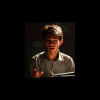
 For all latest news, follow The Daily Star's Google News channel.
For all latest news, follow The Daily Star's Google News channel. 

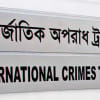
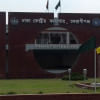
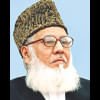
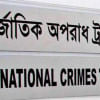



Comments